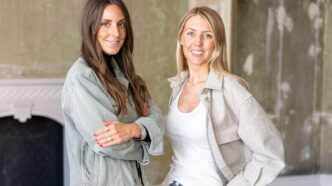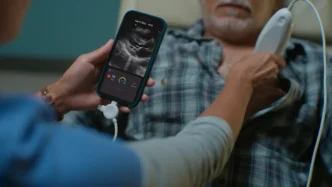London-based femtech startup Hormona has raised $6.7 million in an oversubscribed seed round, underscoring growing investor confidence in women’s healthtech. The round was led by Finnish deeptech VC Voima Ventures and UK-based SuperNode Global, with participation from DLF Ventures, Nascent Invest, and Techstars.
Founded by Karolina Löfqvist and Jasmine Tagesson in 2020, Hormona aims to reshape how women track their hormone levels — offering easy, accurate, and affordable at-home testing powered by AI, all without ever drawing blood.
Traditional hormone monitoring often requires blood tests, lab appointments, and high costs. Hormona eliminates all that hassle. Using lateral flow urine tests, similar to pregnancy kits, the startup allows users to scan a QR code with their phone to get instant insights into three key hormones: estrogen, progesterone, and FSH (follicle-stimulating hormone). No external devices or lab visits needed.
“Our AI scans the test line directly through the camera, so you don’t need any hardware,” Löfqvist explains. That streamlined solution has been four years in the making and now boasts 90%+ accuracy.
The inspiration? Löfqvist’s own experience navigating hormonal chaos while spending over $5,000 to get answers. The process was frustrating — and eye-opening. “Every woman will experience a hormone-related issue at some point, whether it’s fertility, contraception, or menopause,” she says.
Hormona’s tech doesn’t just make monitoring simpler — it’s a leap toward hormonal self-awareness for millions of women who’ve lacked access or insight for too long.
A Subscription Model That Puts Control in Women’s Hands
Testing your hormones under a national health plan can be complex, and private tests often exceed €100. Hormona’s model offers a monthly plan at £40, which includes four at-home urine tests per month. The service also includes cycle tracking, tailored health recommendations, and lifestyle guidance via their mobile app.
For those who prefer digital insights without testing kits, Hormona offers a premium app-only subscription at £10/month, and a free version with basic tracking features. The startup is now exploring partnerships with health insurers and employee benefit platforms to expand access.
Hormona isn’t just proving its tech on Earth. When the founders visited NASA, Tagesson spoke with a female astronaut using hormonal contraceptives to suppress menstruation during space missions. That conversation sparked a groundbreaking collaboration with SpaceX, where Hormona began testing its kits in space environments.
“There’s very little data on how space travel affects female hormones,” Tagesson notes. “Women’s health is hugely under-researched, especially in space.” After months of trial and error — including testing in adult diapers — the team successfully ran their hormone tests in space. Final data is still being analyzed, but it’s a strong signal of the technology’s reliability and versatility.
Using AI to Close the Gender Data Gap in Health
Beyond immediate consumer use, Hormona’s vision goes deeper. The company wants to build a robust dataset to bridge the long-standing gender gap in health research, particularly in hormone science — a field where women were excluded from clinical trials until 1993.
By analyzing hormone patterns over time, Hormona’s platform can flag early signs of serious health risks. For instance, elevated estrogen levels could indicate a heightened breast cancer risk, while early-onset perimenopause may increase dementia risk.
With its fresh funding, Hormona plans to launch its product, grow beyond its current 12-person team, and expand internationally — bringing hormone health into the hands of women everywhere.
As Tagesson puts it: “Fundraising wasn’t easy — especially as female founders building for women — but this shows that the tide is turning.”













